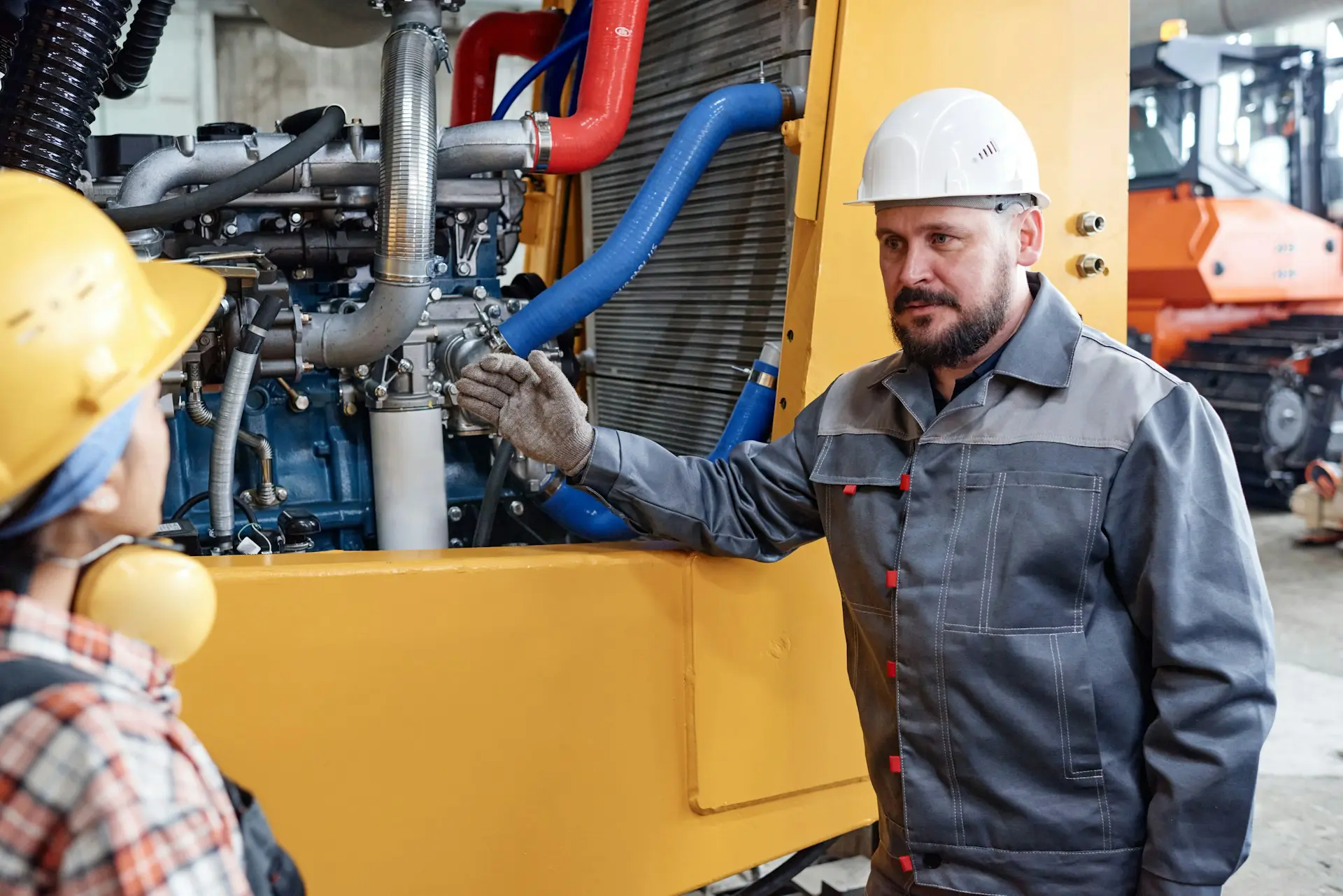Protecting Industrial Equipment Paint from Chemical Exposure

Industrial workspaces across Detroit depend on efficiency, safety, and a consistent physical presence to keep things running smoothly. One part that often gets overlooked is the painted surfaces on equipment. These coatings do more than look clean. They act as the first line of defense against chemical exposure when harsh chemicals are part of daily operations.
Exposure to these substances can wear down paint quickly, leaving machinery vulnerable. It doesn’t take much for this kind of damage to spread once it starts. By understanding how chemical exposure affects industrial paint and taking steps to slow it down, you’re protecting your investment and avoiding more expensive problems later.
Understanding The Risks Of Chemical Exposure
Chemical exposure happens when paint comes into contact with substances that weaken or eat away at it. These aren’t rare materials either. Many show up regularly across workspaces. Over time, they break the paint down, piece by piece.
Common chemicals found in industrial settings that can harm paint:
- Harsh cleaning agents or degreasers
- Oils, fuels, or solvents that leak or spill
- Acids from production processes
- High-moisture environments with chemical mist or vapor
When paint weakens, machinery beneath starts to show signs of damage. It’s not just about looks. Peeling or fading paint can lead to rust, reduced resistance to heat, or loss of structural durability.
Even small chips expose surfaces that start corroding quickly, especially with heavy use. That rough spot might not seem urgent at first, but it grows into a weaker structure if left alone. If you’ve ever seen machinery go from pristine to worn out in a single season, chemical exposure was likely a big reason.
Areas like Detroit, with changing temperatures and frequent humidity, add an extra layer of challenge. Weather swings can speed up the damage if chemicals are already present. Protecting those surfaces means staying ahead of the problem before it becomes noticeable.
Best Practices For Protecting Industrial Equipment Paint
Keeping paint in good shape means staying proactive. If you wait until flaking or fading starts, the damage may already be happening underneath. Regular upkeep catches early signs and keeps you from facing bigger repairs down the road.
Effective ways to protect painted surfaces from chemical exposure include:
- Clean painted surfaces often to remove splashes, spills, or buildup
- Choose gentle cleaning methods to avoid stripping protective layers
- Pick coatings that resist chemical breakdown based on your workspace needs
- Build touch-ups into your maintenance plan to catch early signs of wear
- Reduce chemical splash or direct contact with guards or better handling setups
Sometimes, vapor alone can begin breaking down paint over time. Swapping cleaning products for lower-toxicity options may ease surface strain. Watching how things like hoses, carts, or tools interact with painted surfaces can also prevent friction and damage over time.
The key here is picking the right kind of coating. That choice depends on the chemicals in use and the kind of strain the surface will face. One mismatch and even tough-looking finishes can fall apart faster than expected.
Detroit’s humid summers and wet springs mean longer exposure to moisture and airborne chemicals. Durable coatings suited to regional shifts in temperature and weather are a better fit for long-term care. The application itself also plays a role. Poor prep or short dry times leave paint more likely to peel or bubble later.
Benefits Of Regular Maintenance
Paint might seem like a finishing touch, but it’s really part of your full protection plan. Maintenance helps the finish last longer and do its job more effectively.
Routine upkeep prevents these common issues:
- Water sneaking through small cracks and wearing down layers
- Flaking or bubbling in neglected corners
- Surface rust growing and spreading beneath paint
- Dirt and dust buildup making repaint jobs harder later
- Dull, uneven finishes in workspaces that face clients or inspectors
Keeping things clean and well-covered gives off a professional impression. It can help support internal safety protocols or visual standards too.
Skipping care might save time in the short term, but it usually costs more later. A few delayed touch-ups can turn into scraping, stripping, and full recoating. This kind of fix usually comes with downtime. That means lost productivity on top of product and service costs.
When maintenance is set on a consistent schedule, it becomes less of a last-minute emergency and more of a planned part of operations. Prevention ends up being quicker, easier, and more affordable.
Choosing The Right Professionals For The Job
Painting for industrial machinery isn’t the same as painting a break room or retail lobby. Industrial surfaces deal with heat, chemicals, and heavy use every day. That means you’d want painters who know how to get it done right.
Instead of choosing based on price alone, take a closer look at experience and the types of coatings being offered. Prep and cleanup are just as important as application. Ask if the crew works around active spaces and takes steps to keep things clean and contained.
When you’re hiring a painting partner, here’s what to watch for:
- Experience working in industrial spaces with wear-heavy surfaces
- Knowledge of chemical-resistant paint types that match your use case
- Clear communication and timelines that respect your schedule
- A clean workspace before, during, and after the job
- Advice for maintaining surfaces once the first coat is done
Reliable painting pros care just as much about how the project holds up as they do about how it looks on day one. They work to ensure surfaces stay protected long after tools are packed up.
If your business is based in Detroit, finding contractors who know the local conditions matters more than you might think. Detroit’s hot summers, freezing winters, and busy industrial settings bring unique stress to machinery paint. Having someone who works around that environment daily gives you stronger results.
Investing In Your Equipment’s Future
It might seem like just another coat of paint, but it does a lot of heavy lifting. Paint damage is usually the first sign of more serious problems around the corner. As soon as chemicals start to break it down, the rest comes quickly.
Staying aware of your surfaces and addressing problems early helps avoid costly issues that eat into time and budget. Maintenance also keeps your facility safe, more presentable, and easier to manage long term.
In a place like Detroit, where weather swings keep surfaces under pressure, acting early makes all the difference. Preventing chemical damage before it starts isn’t always exciting, but it works.
With the right team and a smart upkeep plan, your space can look good and stay strong—no matter what it’s up against.
Protect your investment by opting for expert care to guard against chemical wear. Whether you’re maintaining existing surfaces or planning new applications, prioritize quality protection. When it’s time to think about paint for industrial machinery, Armor Tough Coatings has solutions tailored to Detroit’s specific needs. Let us help you keep your facility looking sharp and running smoothly year-round.


